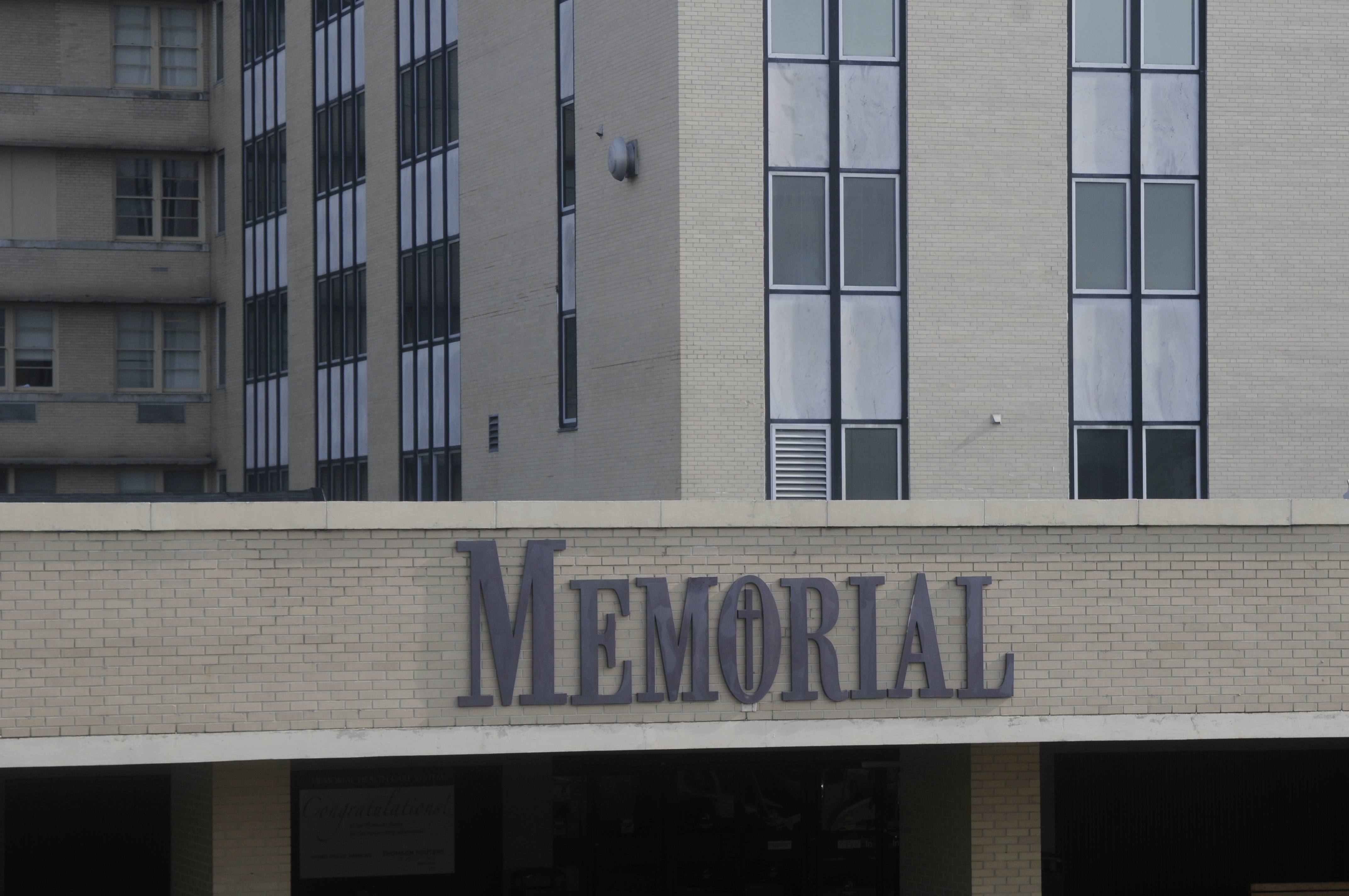When it comes to debate about the facts between BlueCross BlueShield of Tennessee and Memorial Health Care System, not much is black and white.
Since the two failed in contract negotiations last week, both sides have leveled accusations about who is at fault.
In an editorial board meeting with Times Free Press editors and reporters Friday, Memorial executives said they have only asked for enough money to operate their hospital and serve patients. Earlier in the week, BlueCross leaders said Memorial has asked to be the highest-paid health system in Chattanooga, which would drive up already-high costs.
BlueCross accuses Memorial of bringing in a California-based public relations firm to bait BlueCross in the fight; Memorial says it simply hired experts to help send out letters to patients.
Memorial says BlueCross refuses to consider the changing health care market; BlueCross says it is Memorial that wants to negotiate a contract that doesn't acknowledge this is not the system of the 1990s.
No matter what the facts on the details are, this much is clear:
Two large nonprofits - both with thousands of employees and millions in revenues - have thrown down the gauntlet and dug in for what could be a prolonged dispute.
The result is that patients who continue to visit Memorial likely will pay more for their health care, while Chattanooga's other hospitals say they stand ready to take additional patients.
Such standoffs may become more common in the rapidly changing health care industry, as driving down costs becomes paramount, hospitals consolidate to acquire more bargaining power and patients bear more of the cost.
Alwyn Cassil, with the Washington-based Center for Studying Health System Change, calls it "health care chicken."
"Health care costs are still growing at a much higher rate than growth in the economy and that means health is going to take up a bigger piece of the economic pie," Cassil said. "Hospitals have not necessarily been paying a lot of attention to providing care efficiently and keeping costs down because they have been able to get big rate increases. But the question now is, how much can employers bear?"
A recent study by the Center for Studying Health System Change found that hospital systems and large doctor groups often hold the power in negotiations with insurance groups, and payment rate increases outpace the cost of those increases.
"Even in markets with dominant health plans, insurers generally have not been aggressive in constraining rate increases, perhaps because the insurers can simply pass along the costs to employers and their workers," the study says.
TIME FOR CHANGE
Local BlueCross officials said they think it is time to change that. Their goal is to move to newer payment models and to hold the line on health care costs, they said last week.
"We believe fairness should be measured based on what the people and community ultimately pay in premiums for health care coverage," said CEO Vicky Gregg. "The rate demands we've received from Memorial would have substantially increased what we pay for care in the commercial market."
Health care models are moving away from fee-for-service and more toward bundled fees. BlueCross recently has implemented several such payment models across the state.
Payments also will be more linked to quality and outcomes, Gregg said.
Kathleen Stoll, the director of health policy at consumer advocacy group Families USA, said a growing number of insured people also will change the dynamics of negotiations. Hospitals will no longer need to turn to private insurers to make up for shortfalls from uninsured patients.
"[The insurers'] place at the table is to try to push down the prices," Stoll said. "They are being a little more aggressive with the hospitals with the emphasis on costs."
AN UNCERTAIN MARKET
On the other side, Memorial cites an uncertain health care market and declining margins as the reasons it refused BlueCross' offer.
The hospital's operating margins fell in the last two years. That margin was 2.6 percent most recently, down from more than 3 percent, CEO James Hobson said. The hospital's total margin is about 8 percent.
No one is sure what will happen to Medicare payments, Hobson said at the editorial board meeting. Both BlueCross and Memorial have acknowledged that for some services, Memorial receives lower reimbursements than Erlanger or Parkridge.
"We feel we provide quality and service," Hobson said. "The challenge is to continue to move forward and to find new ways to provide that care."
Stoll said it is more difficult for hospitals to determine what their cost structures will be and how payments will be negotiated several years down the road.
Hobson agreed. The contract Memorial attempted to negotiate with BlueCross was for four years, he said, and a lot could change in that time.
THE GAMBLE
Experts say negotiations between hospitals and insurers are very much based on local situations. It depends on how many hospitals and insurers are in an area, how big the hospital is and how much name recognition the hospital has.
Memorial, which had lagged behind market share with public hospital Erlanger, recently has grown significantly. It also has gotten high ratings in several national safety rankings. The hospital specializes in cardiac, orthopedic and cancer services, three areas that have higher margins of profit than some others.
Hobson said hospital officials are confident patients will push to have their insurance plans switched to include Memorial. While BlueCross commands more than half the insurance market in Tennessee, businesses certainly have the option to switch to other insurance companies but it would not be a rapid process.
BlueCross said none of its customers has made that switch yet.
Meanwhile, the standoff will cost Memorial money, according to its pledge to patients. The hospital has said it will not charge patients additional copayments or coinsurance, even though BlueCross will pay lower copayments under the out-of-network terms.
Patients still likely will pay more in higher deductibles and other possible out-of-pocket costs.
Both sides have said they are willing to return to the negotiating table, but that they are also prepared to stick to their guns on the terms.
Even though such high-stakes chicken likely will continue in the current health care world, Cassil said it is not clear that patients are actually the winners in the fight or how much it will drive down costs.
"We have this cost problem in the country and everyone is averse to dealing with it in a grownup way," she said.


